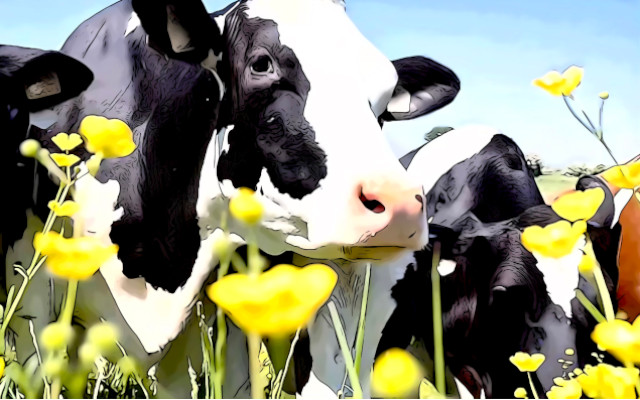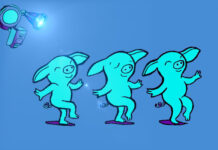Comprehensive and structural reform of the European animal welfare framework cannot wait any longer, as has been repeatedly reported, including on this site over the past few years (1,2). All the more so as we consider the crucial interaction between animal welfare, human health and environmental protection on which the One Health strategy, adopted by WHO with the support of institutions and the international scientific community, converges. (3)
Civil society, through the Eurogroup for Animals, published an open letter on September 7, 2023, signed by 637 academics, researchers, veterinarians, and scientists involved in the field. To urge European Commission President Ursula von der Leyen to present within the current term (which expires in early June 2024) the Animal Welfare Regulation proposal that has already been postponed several times without justification. (4)
1) Animal welfare, civil society’s open letter to the European Commission.
Eurogroup for Animals calls on the European Commission to deliver on the commitments made in the EU Farm to Fork Strategy (5) and publish the proposed revision of animal welfare legislation during the current political term.
Indeed, the puzzle of regulations that variously deal with animal welfare in the Old Continent is:
– outdated, compared to public expectations and scientific evidence associating animal welfare and health, human health and ecosystems,
– devoid of guiding criteria, it adds, although Official Controls Regulation (EU) No 2017/625 added animal welfare as a key requirement for food safety. (6)
1.1) The concerns of European citizens
Structural revision of animal welfare legislation is a priority for EU citizens. As evidenced by the extraordinarily high participation, in the last public consultation organized by the European Commission in 2022. 59,281 participants, 92 percent of whom say that current legislation in the EU does not provide adequate and uniform protection for all animal species in distress.
Five popular legislative initiatives (European Citizens’ Initiatives, ECI) on animal welfare have collected 40-50% more signatures than required, and some of them are still awaiting due feedback from the European Commission. In particular:
#SavetheBeesandthefarmers, to protect bees and pollinators by phasing out synthetic pesticides, by 2035, (7)
#EndtheCageAge, for the elimination of cages and a radical reform of animal housing conditions on farms, (8)
#SaveCrueltyFreeCosmetics, to end the use of animals in cosmetics and other chemical testing, ahead of the more ambitious ban on all animal experiments, (9)
#StopFinningEU, to ban trade in shark fins, (10)
#FurFreeEurope, to ban fur farms and the sale of farmed fur products from the European market. (11)
1.2) Scientific evidence
181,000 scientific articles on animal welfare have been published in the past 25 years. Advances in scientific knowledge and technology – also recalled in the latest European Food Safety Authority (EFSA) opinions – show the need to introduce clearly defined, measurable and harmonized animal welfare indicators.
Gaps in animal welfare discipline throughout the entire production chain-from genetic selection, it is added, even before birth, to slaughter-are no longer tolerable. Nor can one accept the asymmetrical application of existing rules in member states, as already pointed out by the European Court of Auditors. (12)
1.3) Benefits for livestock supply chain operators.
The revision of EU animal welfare legislation will not only benefit animals but also livestock supply chain operators. Livestock farmers in particular will be forced to make new investments but will at the same time receive European subsidies to adapt their stables and facilities to the new rules. And they will certainly benefit, according to Eurogroup for Animals, from the disruption of unfair competition practices (intra-EU and non-EU).
‘A robust and up-to-date animal welfare legislative framework will complement the EU Farm to Fork strategy in its goal of making the European food system fair, healthy and more sustainable. Improving animal welfare standards is an important component of this effort, which also represents the environmental, social, ethical, and economic interests of European citizens, businesses, and governments‘ (Eurogroup for animals, 7.9.23)
Dario Dongo
Notes
(1) Dario Dongo, Marina De Nobili. Animal welfare, ad maiora. The Role of ConsumAtors. GIFT(Great Italian Food Trade). 10.7.20
(2) Dario Dongo, Alessandra Mei. Animal welfare, EFSA opinion on calves. GIFT(Great Italian Food Trade). 5.4.23
(3) Dario Dongo. One Health. Animal, human, planetary health and welfare. What can we do? GIFT(Great Italian Food Trade). 2.6.21
(4) Eurogroup for animals. European Commission urged to publish revised animal welfare legislation. https://tinyurl.com/787kz2kn 7.9.23
(5) Dario Dongo, Marina De Nobili. Farm to Fork special, the strategy presented in Brussels on 5/20/20. GIFT(Great Italian Food Trade). 24.5.20
(6) Dario Dongo, Giulia Torre. Official public controls, EU Regulation 2017/625 kicks off. GIFT(Great Italian Food Trade). 18.12.19
(7) Marta Strinati. Green light for the Save the Bees initiative. GIFT(Great Italian Food Trade). 10.10.22
(8) Marta Strinati, Dario Dongo. End the Cage Age, 1.4 million signatures delivered to the European Commission. GIFT(Great Italian Food Trade). 6.10.20
(9) Eurogroup for Animals. Save Cruelty Free Cosmetics, European Citizens’ Initiative https://tinyurl.com/3hxjzd89
(10) European Citizens’ Initiative. Stop Finning – Stop the trade https://tinyurl.com/y9vnmme5
(11) Fur Free Alliance. Mort than 1.5 million citizens ask for a fur-free Europe. https://tinyurl.com/334bk7cy 14.6.23
(12) European Court of Auditors. Review 03/2023: Transport of live animals in the EU: challenges and opportunities https://tinyurl.com/5n82c3az
Dario Dongo, lawyer and journalist, PhD in international food law, founder of WIISE (FARE - GIFT - Food Times) and Égalité.







